Greetings from Erik the Flutemaker. This is an article that is quite overdue. If I can better help my customers to play that will be a delight for me, and a benefit for you. I do not read or write music but I have had a career in music and produced 6 CDs. I respect those who read and write music and respect more, those who do that, and can also improvise. Most of my customers in my 46 years of flute-making will play their flute but do not know how to read or write music. I am in that club and that is fine, nothing wrong with it.
My definition of “Improvise”: Playing music that is flowing through you with a beginning, a middle and an end while being conducted by your ear.
Dictionary definition of Improvise: To create and perform (music, drama, or verse) spontaneously or without preparation.
To compose and perform or deliver without previous preparation.
To compose or play music on the spur of the moment.
Someone once asked, “How do you know God’s will?” And another responded, “It is easier to know and follow God’s will for the next 10 minutes.”
There is something about being in the present with music and going with the flow.
When I ponder how I improvise, I am reminded that I must use some basic building blocks to be able to build. To build a toy Lincoln Log Cabin, a child will need different pieces.
Here are some building blocks to help you to improvise.
Start with all fingers down,
End with all fingers down,
Blow soft
Blow hard,
Blow long,
Blow short,
Roll a flute to bend a note,
Bend a finger back then forward to bend a note (good on a major scale and seen in my Jazz tutorials on my Sax pages)
Slide the finger over the hole to bend a note (good for the major scale and seen on my Irish music penny whistle video).
Use the peace sign fingers together on the holes below to make a major scale sound incredibly jazzy.
Where to start: Start with all fingers down, that is, all holes are closed, (pressing the pads of the fingers not the finger tips). And end the song with all closed, ending with the root note which is the grounded note, a great place to start and finish your musical piece. The root note, with all fingers down, takes the listener, you or your audience from “home” and after your mini musical journey, you drop them off at “home” again. And you just did music. You improvised. You created spontaneously without preparation.
You must start somewhere and all closed (when you are starting out in music), especially on an exotic scale is the best place to start. It is the beginning and end of the journey.
I recommend starting slow, moving into excitement and ending slow with all fingers down.
To be able to improvise, I first think the scale of your flute needs to be introduced and become familiar to your brain. By just playing the scale, you are programing your upstairs computer that will later sing it back beautifully. It enters into your brain and then subconsciously comes out singing through your flute.
The melodic scales I make will work perfect to learn to improvise on. The harmonic minor flutes like the Incredible Vivaldi Minor or the deeper Counselor or the pentatonic scale like the Oriental Flute, Kung Fu Flute and Chinese Flute. Or other exotic scales like the Ice Age, Kokin, Meditation flute, Arabian and Egyptian Flute.
In other words, I recommend sitting and just playing the scale for about 3 minutes at a time, the first few days to get the notes and the scale into the brain, who by the way is the composer. This input investment up front, will let your soul sing out flute music later.
When getting to know a new flute you are also learning how to best hold it to balance it, to get good sound. You cannot ride a horse unless you first get up on it properly and then you can go riding. There are things you need to do correctly to be able to play.
These basics include pressing the flute against your soft lower lip for good contact; the knuckle helps to do that creating a circle of pressure. Rolling the flute to find the sweet spot. You can look in the mirror to make sure you are not puckering and to make sure the lip is not tight to be able to get good sound. But this article is about improvising so I am getting back to that.
After you have allowed your brain to subconsciously know the alphabet or notes of your scale, play the notes again but this time let your creativity join you. Start all down. (On the meditation flute the root note is 5 fingers down, see tutorial for that). Then put emotion into your playing. The blow hole should be closely rolled inwards for intimate notes. Some players get a lot of emotion rolling their flutes in and out. You see this with Shakuhachi players with their end-blown flutes. Seems to work with Asian sounding flutes but that can become overkill for some other musical scales.
Here is what I hear myself telling people about improvisation: The ear is the conductor. It is the ear that will guide you. You begin to play long and soft. The ear is listening, your whole being is listening. Your listening is connected to your sense of expectation, well-being, creativity, your sense of leading, adventure and sense of beauty. The ear tells you where to go to make it sound good, after starting slow and clear and mellow your ear suddenly tells you to go into the upper octave and play faster. It is the ear that tells you, blow harder, go to the higher octave, hold that note and now go back down to the first octave, blow softer more quietly, go back to that soft place, now repeat that phrase.… In time, you don’t hear those directions any more, you just create and enjoy the song as if you are in the audience.
Improvisation is best done not with the head but with the heart.You need to use the head with the major scale to follow the numbers on our simple flute lesson sheet. Like the song Amazing Grace which starts out 6, 3, 1 1. Which means all 6 fingers are down, next note is 3 fingers down then blow with 1 finger and blow again with one finger down. You need the head for that.
But you need the heart to create your owns stuff with the easier melodic scales.To me, a melodic scale means anything you do, going up and down the scale will sound good.
I mentioned that the ear is the conductor. The ear is the guy out there in the tuxedo with the stick playing the orchestra, leading the music. Starting the song, adding mood to the music, timing and then ending the song. Now the ear is connected to your body, soul and spirit.
You are made up of 3 parts:
1. Body: The body needs to be able to hold the flute correctly, use the lips correctly (soft lip) to get decent sound.
2. Soul: It is your will and emotions. You are a unique being that was created and can create. You have been through the school of life and have something to say, it comes out in music too, as you tap into it and let it come out.
3. Spirit: I am a man with a spirit, soul and body. You also are a spirit being or you also have a spirit that lives in a spirit dimension connected to a spiritual force.
As to my spirit: It has come alive and is connected to creativity and virtue. On a November day in Hawaii in 1974, I surrendered to the greatest living being, the gracious Heavenly Father and His Son Jesus, so my spirit now rests in heavenly places in Christ. I am forgiven, have been given new life and am connected by faith to God, His promises and at times led by His Holy Spirit. I have a relationship with God in the spirit. I am a created being in touch with the Creator, who is creative. Today in church I played an amazing piece of music that just came through me during our worship service. It was really awesome. There are times an inspired improvisation has a prophetic anointing where the listener receives a message in pictures in their mind from the other side. One of my dreams is to play the music I hear through my spirit inspired from above to help bring healing. The music comes to my spirit, through my soul while being played using my body. That heavenly sound is best heard in nice acoustics or with reverb making it feel more heavenly. And best played along with an anointed sensitive musician. That music goes into the ear of the listener touches their soul and hopefully does something positive in their spirit. It is easy to believe that music can calm one, bring comfort, encouragement, can bring release, help to focus away from pain, help heal a broken heart, help to deal with a trauma. I also want to see my music help heal a sick body and help a troubled soul.
An example of 2 pieces of music that were an improvisation in a studio and inspired was In His Presence and the Courts of the King.
In His Presence: I was in a recording studio and had asked the Lord to bless our session. I felt led to tell my pianist Peter Avello to play the keyboard as if it were a harp and I grabbed my Oriental Flute. In seconds I put it down because it sounded awful. I picked up my concert tuned G Brazilian Major and we went somewhere absolutely beautiful. About 30 seconds later the recording engineer knocked on the window and said, “That is so beautiful, start again I am ready to record.” I didn’t even know what we were doing but we did start again and the creativity was still there and we captured one of the best pieces of music I have ever done in a studio.
When the song, The Courts of the King was coming as a download I was having a vision of someone walking into a grand heavenly cathedral with thousands of people on each side of a long purple carpet. They were people of all cultures, tall short, different colors, different garbs from different times, men women children. Then as if a flying drone was coming down to the person walking, I was now inside the body of the one walking, as the crowd quietly nodded their heads welcoming me in. And I saw at the end of the carpet one sitting on a throne. That’s what I saw when that music was being played. I feel both pieces were inspired by the Holy Spirit.
Sometimes when I improvise I feel my soul is singing. But it is always the ear who is the conductor leading where to go next. I seem to be somewhere outside of myself, just listening and enjoying the music. One of my joys was to find out my peaceful music was being played on Colombian radio stations during hard times there. All that music was improvised.
As to the Major Scale: The do, re, mi, fa, so, la, ti, do scale. This is a great scale to copy tunes. It can play in 4 keys. It will play in major, minor and pentatonic. But it is not considered a melodic scale. As you run up and down the scale it doesn’t sound very musical. You have to know what to do. So I teach techniques on my tutorials on this, which you can see in the Brazilian Major flute and the penny whistle and sax web-pages. So to improvise easiest, I recommend the exotic scales of my flutes.
To play along with others, a flute tuned to itself will always play well with some percussion. But to play with a keyboard or guitar player the player will need to retune to you. If your flute is concert tuned like a G major or D major, you are already in tune with the world in what is known as A440. Today’s universal standard of tuning. Many are toying with other tunings like A434 but that would be a different article that I don’t think I will write.
It is important to know the key someone is playing in, to be able to play along. If someone is playing in C. I know I can play my C whistle, C sax or my G sax or G flute, using the peace sign fingers together. I just let my ear lead to conduct me. I got to the point where I hear what to play an instant before and my fingers effortlessly just plays it.
In review: When starting out: Let your brain know your scale so you can later let your soul sing with it. To improvise is to tap into a download of music conducted by the ear creating spontaneously without previous preparation. It is like your soul is singing through the flute. Sometimes when I play, I feel I am playing the flute and at other times, I feel the flute is playing me.
To improvise is to create. And to make it sound good, the ear will guide you. It is good to have a start, a mini journey and an ending your song gently dropping your audience where you found them, but richer.
And remember an audience is a creature who wants to go somewhere. Have fun, hope I can help you again, in the Fluture.
Erik the flutemaker
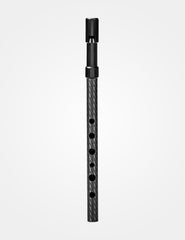
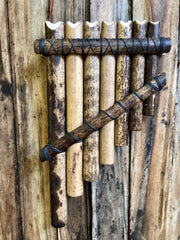
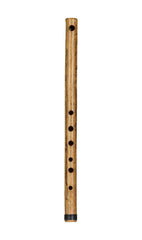
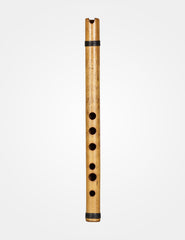
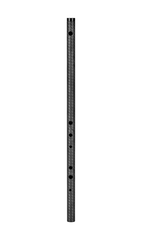
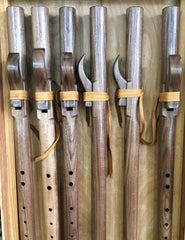
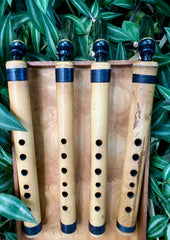
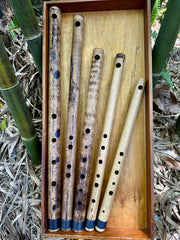
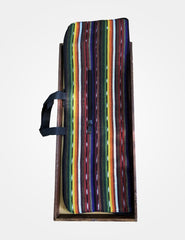






i appreciate you freely giving your professional thoughts to others….i found it the advice refreshing
Great article
Love the advice